Sign up for trending news and first dibs
The Future of Esports in Singapore
The Future of Esports in Singapore
What does the esports industry hold for a small country like Singapore? More than you can imagine.
By Drew Holt-Kentwell
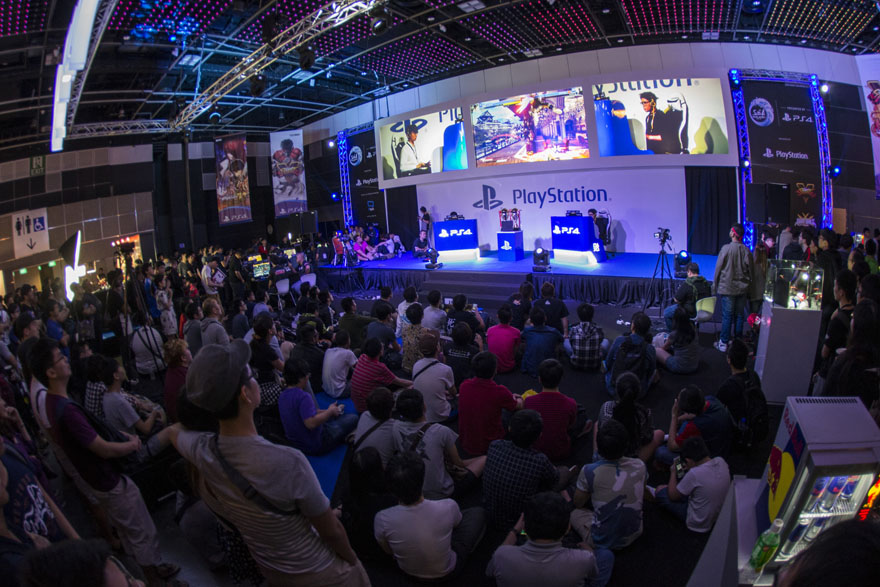
Gaming conventions such as GameStart Asia are avenues for esports enthusiasts to show their worth
“Why the hell isn’t esports exploding in Singapore with the amount of talented and passionate people we have in the scene right now?”
This was the question raised by Hammy (formerly Razer and Garena) on Facebook in the wake of ESL One Genting, and I’m sure the question re-surfaced in peoples’ minds when they went to a remote mountain resort in Malaysia and bumped into so many driven, passionate, and talented people from Singapore. It’s a great question, and I’ll try to condense some of the thoughts from the Facebook post and provide some perspective of my own.
I’ve lived in Singapore for over five years now and it was always intriguing to me that under the surface a healthy, vigorous esports scene was bubbling happily, though it isn’t obvious at first glance.
I’m sure people reading this would argue one game or another was more popular than the others here, but look at the sheer diversity of communities here (even if they do ebb and flow): Dota, League of Legends, Overwatch, CS:GO, Street Fighter, Hearthstone, Dead by Daylight and more. The thing to recognize is that in such a small country all of these games co-exist with competitive communities of their own – and there’s obvious diffusion between them all, too.
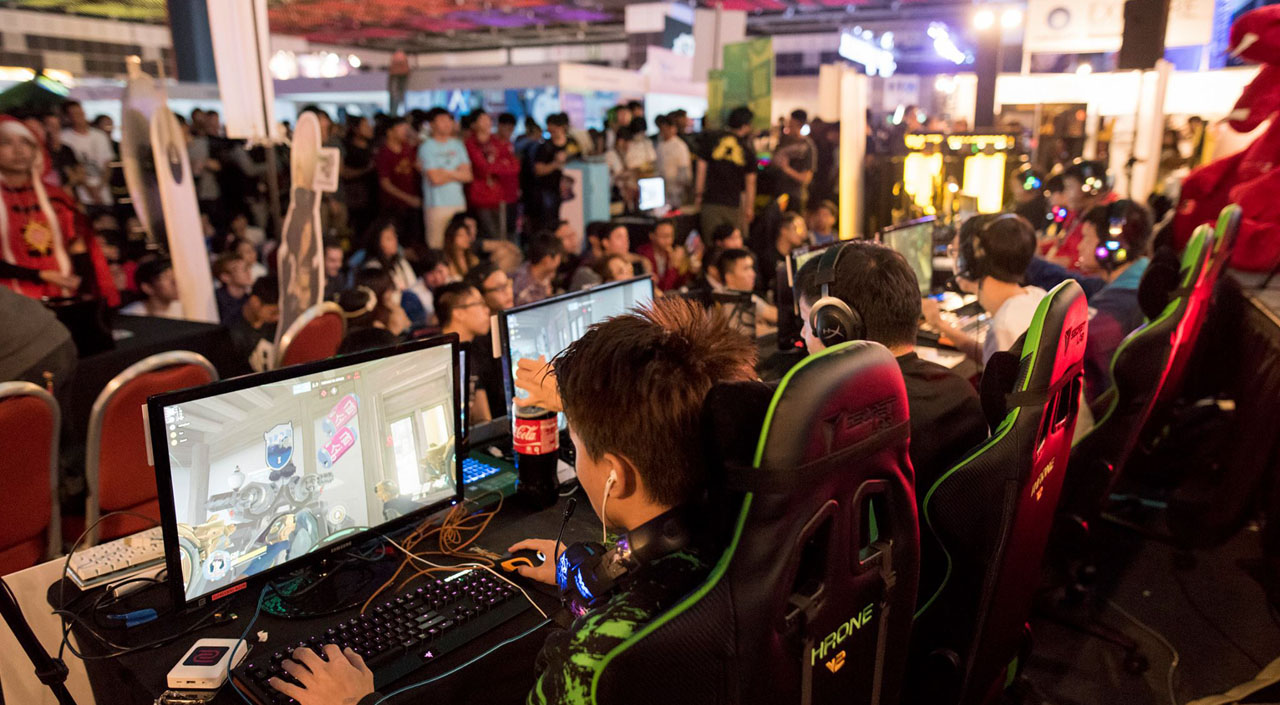
Singapore is home to over 200,000 gaming enthusiasts, a sizable number given the size of the country
As of the latest Newzoo report, there are now 200,000 esports enthusiasts in Singapore – that’s allegedly a 5.1% share of the entire online population in the country and, for comparison, 3.7% of the total population (5.4M). That’s a lot of people – and they need mobilizing. Thought leaders and innovators need to pave the way.
One observation is that although Singapore does appear to have peaks and troughs of esports activity and popularity, it feels like the growth of the industry as a whole is beginning to fully percolate across South East Asia, and Singapore more specifically. More developers are setting up here, more people are working in the industry, more games are taking root, and non-endemic brands and investors are getting their first real taste for the industry here at home.
Those people who grew up watching esports are now at an age where they can start considering what they truly want to do in the industry – working, playing, volunteering, and contributing. For me it has certainly been more obvious than ever that Singapore has an incredible talent pool for people in the business, and people want it more than ever.
But what are the obstacles standing in the way of reaching that next level? Are we materializing issues that aren’t there, or failing to tackle the important ones? Yeah, probably.

Games like StarCraft 2 are just one of many titles that form esports competitions
I’ll nip this one in the bud early on so we can get it out of the way. One of the comments made on the Facebook post was, “Confirm will not work in SG. If only SG is 10 times bigger with a matching population… Is there any country the size of SG with a successful and profitable esports organization?”
Assuming size is an issue for Singapore achieving even a small amount of success in the esports industry would be a mistake.
Take Denmark, for example, which has a population of 5.6 million. It has produced some of the best Dota (Maelk, Misery, Synderen) and CS (zon1c, dev1ce, cajunb) players the world has seen, and F.C. Copenhagen just announced the launch of “NORTH”, their professional esports team project. Finland and Norway both have similar populations and have produced equal amounts of success in esports: Norway is home to “The Gathering“, the world’s second largest LAN party behind DreamHack, and Finland puts on “Assembly Winter“. It’s also worth noting that it has also been over a year since Finland officially recognized esports as a sport.
One of the points that came up on the Facebook post from Tammy/furryfish (formerly Razer, presently Twitch) was collaboration, or the lack thereof. There is an underlying feeling that some ventures want to carve out a piece of the industry for themselves given the relatively underdeveloped nature of infrastructure in esports – and that’s an issue with the industry as a whole, not just in Singapore. The truth is that in a country this small we absolutely need to work together to pool resources. You can’t do everything yourself, nor should you try to.
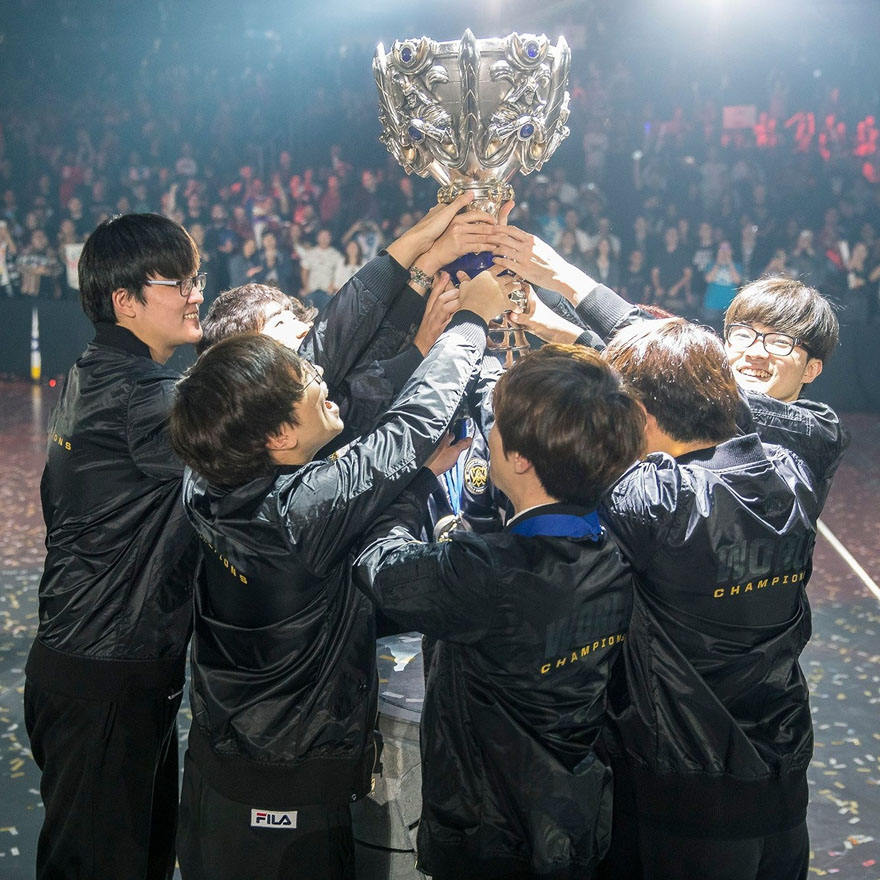
To pull off a feat such as the 2016 World Championships requires pooling of resources and a proper infrastructure
I feel like people need to start specializing too. With a small community but so much going on it’s tempting to be a jack of all trades and spread yourself too thin. People working (or who want to work) in the industry should pick a skill or an interest they’re good at and specialize – marketing; business; legal; social; events; design; etc. There’s nothing stopping people being involved on the periphery with other aspects of the industry (and really, everyone should dabble a little in each sector) but this will allow people to collaborate easier.
More needs to be done to engage the audience here. 200,000 people participating in esports, watching, playing, and contributing to the esports economy whether it be through in-game purchases, merchandise, apparel, stream subscriptions, or travelling to events. There needs to be more for those people to do, interact with, and spend money on if we’re to have a healthy ecosystem here.
This does however bring one major issue to the forefront, and that’s the lack of a closed circuit ecosystem which consists of investment, talent, tournaments, and teams. The ecosystem can’t exist with all four pillars.
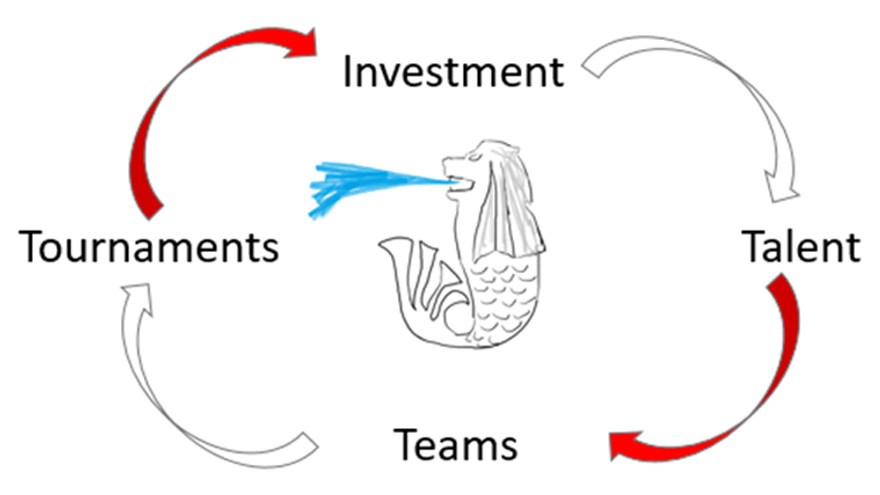
Did I hand draw this Merlion in Paint exclusively for this article? You bet your ass I did.
Getting sponsors and investors to spend money in Singapore is an obvious challenge, but it’s not impossible. As esports in Asia grows, more foreign firms will want to invest here – the challenge is positioning Singapore as the safest or most promising country for investment. Singapore is start-up friendly, has great internet infrastructure, it’s an incredible global travel hub, easy for foreigners to adapt to (except for the sweltering heat), and the goal would be to have it develop the most interactive and engaged esports audience in South East Asia. We’ll come to that later.
With that investment, the rest of the ecosystem can start to take root in a healthy, consistent fashion. Developing talent, and allowing people to be paid for what they do well, is absolutely critical. This allows people to get better at what they do, but it also makes them more viable pickups for teams, creating the fan-favorite brands that people will ideally become more engaged with (and ultimately spend money on).
And last but not least, tournaments are the lifeblood for teams and investors. Without them there’s no tool to reach thousands of people at the same time with the same interests – a valuable platform for those same sponsors/investors to reach possible customers, and the way in which teams make esports history and become the famous teams that locals want to follow, as well as or instead of foreign teams.
Nelson Sng (of HKEsports) rightly mentions player mentalities as one of the core issues. Walao eh. So true.
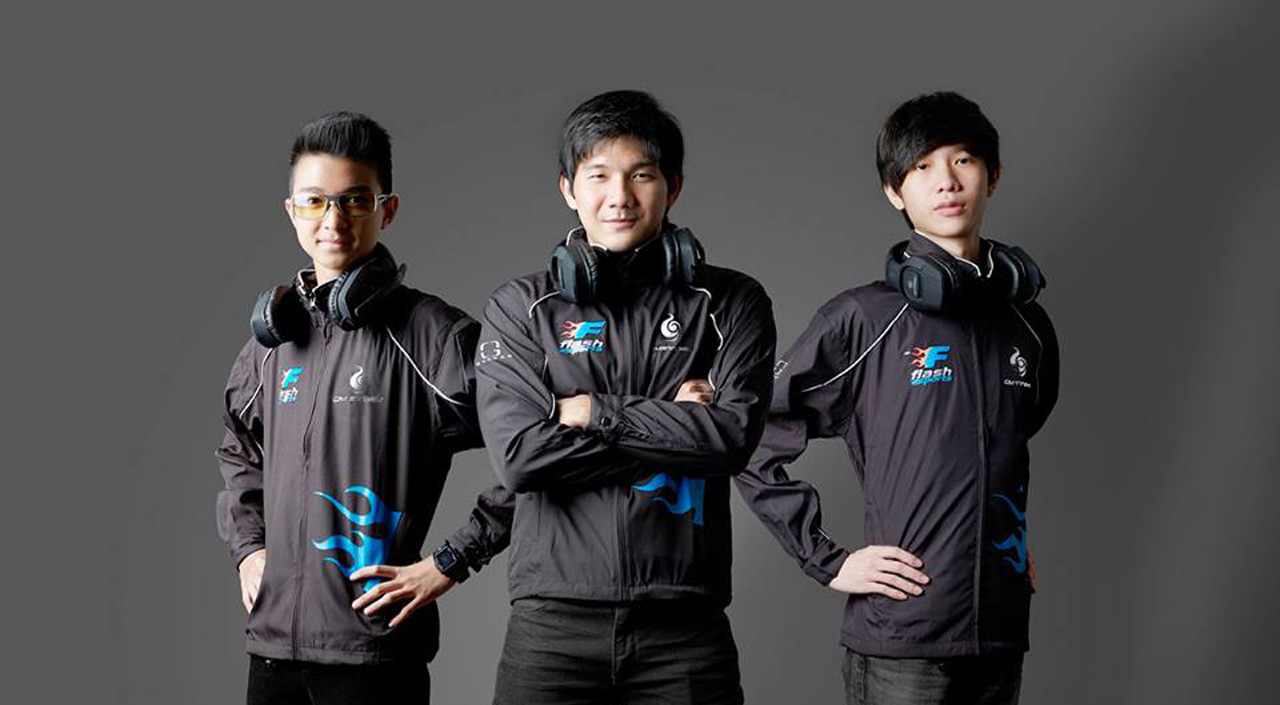
Team Flash returns to Singapore’s esports scene after a brief hiatus
There seems to be a recurring sense of entitlement for some players in Singapore. Not all, but a lot. The bottom line is: you don’t deserve anything until you earn it. Plain and simple. If you’re lazy and expect things to fall into your lap because you think you’re decent at the game, you’re wrong. Being a professional requires hard graft, devotion, and maturity. If you approach being a player with arrogance, you’ll find that you struggle to earn respect from teams, peers, sponsors, and fans alike. Be humble and keep your mind open.
Now, the part I said we’d come back to. How do we engage people, and how do we make Singapore an enticing location for potential sponsors and investors?
Singapore doesn’t have to be a country that’s driving thousands of sales for companies. The promise of growth, potential, and reach is good enough for some companies to want to invest. Investors take calculated risks in fresh markets in the hope of a massive payoff. We don’t necessarily need the scene to be in full swing with dozens of major events and pro teams for people to spend money here – by then it’ll be too late for people to invest in the true sense of the word.
When catering to sponsors, go above and beyond and continuously strive to demonstrate the value of your project. Discover what the sponsor’s goals are before you’ve even approached them, if possible, and continuously strive to meet and exceed those goals. Go out of your way to impress and over-deliver, because setting expectations too low would be detrimental, and I don’t think anyone here wants to be sub-standard.

Sponsors are necessary to keep esports alive, so go out all to entice them
We also need to mobilize those 200,000+ people and ensure that they can be engaged effectively – not to mention make Singaporean esports enticing for other nearby South East Asian countries to follow and participate in. Figuring out in each game and community what gets people out of bed in the morning; what makes them click articles; interact with sponsors; spend money; leave comments; so on and so forth. Figuring out what makes the Asian esports fan tick (apart from dank memes).
This feeds into another issue we can touch on here: the lack of a consistent, truly active content portal for Singapore. Somewhere that condenses all the latest news and updates in the esports scene here at home; reports on new or emerging teams and roster shuffles; opinion pieces on esports here and the growth/development of the industry at large. The good news is that there are already individuals with fantastic insight and professional background working towards this, so fingers crossed we’ll see more soon.
Cultural acceptance. No, esports isn’t as accepted here culturally as in other countries like Sweden or South Korea. But the latest data tells us there are at least 200,000 people who are all doing something to grow esports here, even if that’s just tuning in to watch a stream or like a Facebook page.
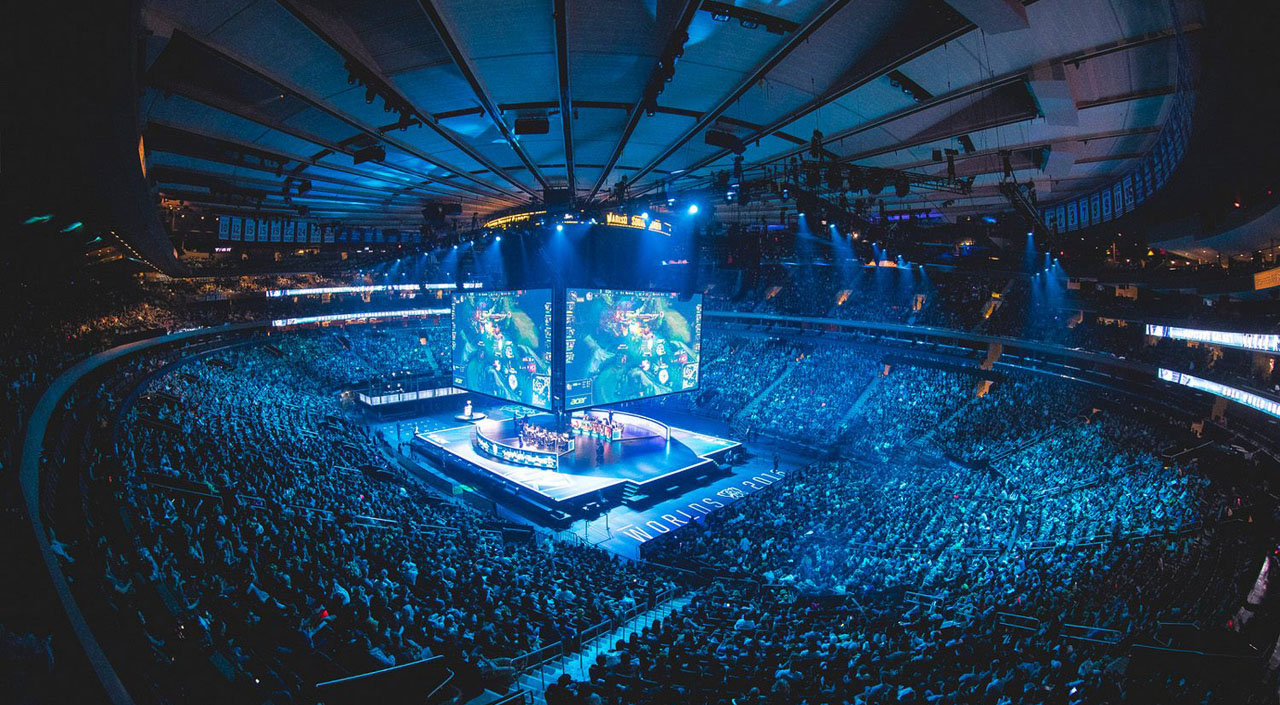
With cultural acceptance, Singapore’s 200,000 strong gaming community could fill up an entire arena and more
I feel like lacking cultural acceptance is a weak excuse for why esports hasn’t yet developed here, and I don’t personally see it as a real obstacle.
Talking to strangers on the internet or sharing your every move with them on Twitter wasn’t socially acceptable; until technology allowed enough people to do it. Having a private conversation on a telephone in a public space wasn’t socially acceptable; until technology allowed enough people to do it.
As the millennial audience and the generation of digital technology, we do have the power to make cultural changes. We are the cultural change, and it’ll change whether anyone likes it or not.
Speaking of change…go out and be the change. People love to talk and hash things out but rarely follow-up and execute. One of the most rewarding things you can do is conceive a damn good plan then execute it flawlessly. That’s what achieving something feels like, and it’s far more rewarding than just firing around cool ideas.
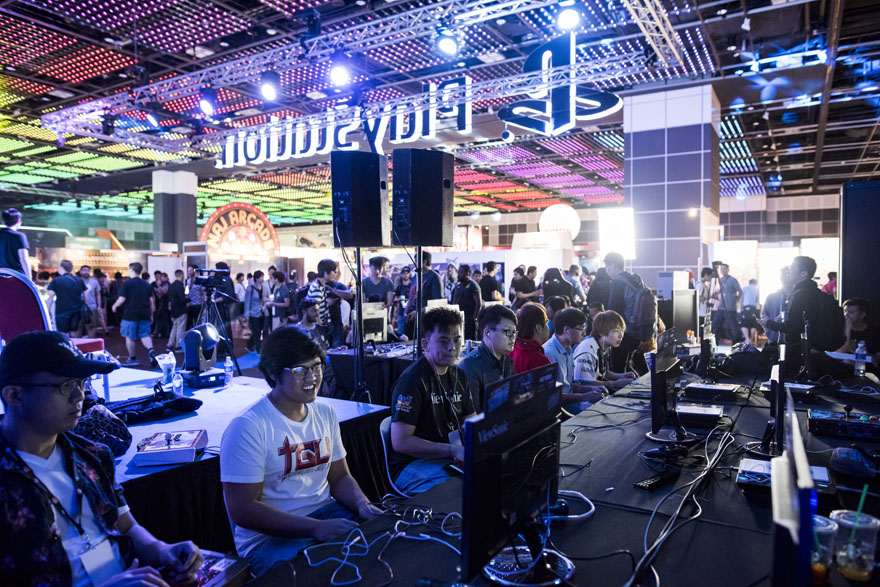
Being part of the gaming community entails call-to-action and an active presence
So, what do we do moving forward?
Specialize: Go out and become good at one thing. Own it. Make it yours and be amazing at it.
Collaborate: You can’t do everything alone, and some people will undoubtedly do it better than you. Use the resources others provide, and structure that into your planning. Ensure that the partnership is fair and you both benefit.
Volunteer: It may feel like old advice in this industry for those with a more global approach, but given that Singapore is a touch behind the industry at large, I do believe volunteer experience here in Singapore is worth obtaining. If that means doing so outside of a normal job, then so be it. But ensure you define your goals in the work you do, and know what you’re building towards. There’s plenty of experience to soak up out there.
Organize: Local meetings, gatherings, or groups where discussions like this can take place – so long as there are clear, actionable tasks!
Support: Go out and support local esports initiatives. Even if that just means showing up at events or doing your part to share the news with friends.
Tell everyone you know about esports! Is it cringe-inducing having to explain that people play video games competitively against each other? Yeah sometimes, but it doesn’t have to be. Tell them about the prize money, the millions of people involved across the world, and the ways in which it’s providing legitimate, achievable job opportunities.
There are a handful of other reasons that we could exhaustively run through in this article, but perhaps we’ll save them for another time. I’m sure Hammy was as surprised as the rest of us to see such a stellar response to the question in any case.
To close this out, I consider myself incredibly lucky to live in a country where there are so many passionate people working in esports, and I’m sure many people feel the same way. But moving forward, there couldn’t be a more exciting time for the industry and I for one hope we will all be proactive in inspiring esports in Singapore (and beyond).
Drew Holt-Kentwell has been involved in esports for more than eleven years, and is a former competitive player, team general manager, and event organizer from the UK. After leaving Razer in October 2015 where he was the head of esports, Drew started Catalyst Esports Solutions, a global esports marketing and talent agency which is headquartered here in Singapore.
Read More: Team Flash Returns to the eSports Fray
TAGS
Tags:







